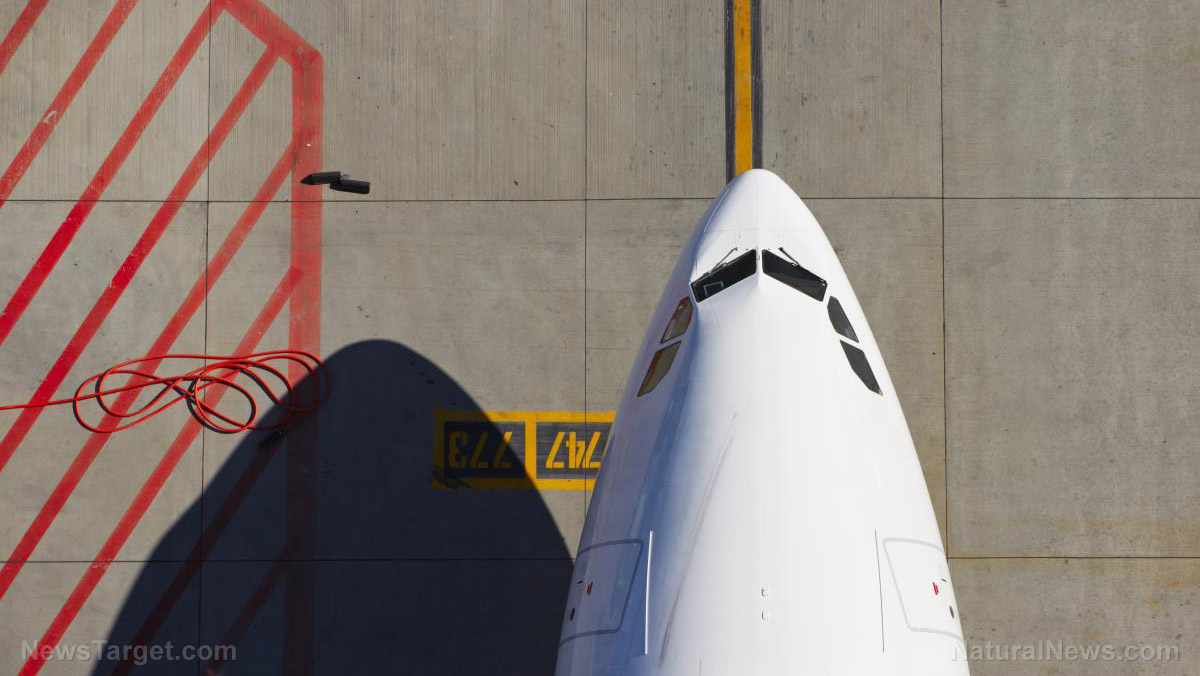Coronavirus has made jet fuel so cheap it’s now being used to fuel ships

As the coronavirus continues to batter the U.S., businesses have been doing whatever they can to keep businesses open — this, even as lockdowns have kept customers indoors. Unfortunately, this also includes massive layoffs, leaving people to rely on their savings or financial aid from the government.
The once-thriving airline industry is among the hardest hit — these days, jet fuel is much cheaper and used as shipping fuel.
The airline industry’s woes
Many industries struggled during the pandemic, but aviation was hit by a one-two punch. First was the fear of contagion, especially since flying puts you near countless strangers from the airport right until your board the plane.
Second was the “tumbling” economy. In aviation, air travel often correlates to GDP (gross domestic product), meaning when “people have more money, they fly more.” As the pandemic spread throughout America, the number of people who needed (or dared) to fly decreased significantly.
This isn’t the first pandemic that has affected airlines, but the industry has only had to deal with one factor in the past. During the 2002 to 2004 severe acute respiratory syndrome coronavirus (SARS) outbreak, authorities deemed travel unsafe but the global economy didn’t flounder.
During the 2008 financial crash, budgets were tight, but flying wasn’t considered a health risk.
Unfortunately, the coronavirus pandemic made things twice as difficult for the airline industry. Before the pandemic, being unable to fly would have been unimaginable for customers, investors and airlines alike.
The last 20 years have been “a period of superheated growth” for commercial aviation. Back in 1998, airlines sold 1.46 billion tickets for various flights. As of 2019, that figure skyrocketed up to 4.54 billion.
But 2020 brought the industry back to square one. Back in March, the International Air Transport Association (IATA) published two potential scenarios. The more extreme one predicted a global loss of revenue of $113 billion.
Cirium, the aviation research firm, reported that by mid-April, at least 14,400 passenger planes worldwide or 65 percent of the global fleet, were placed into storage. Because of the pandemic, several companies have been brought to the brink while others collapsed entirely, such as:
- Avianca (South America) – Avianca filed for Chapter 11 bankruptcy in May.
- Compass Airlines (U.S.) – Compass shut down in April of this year.
- Trans States (U.S.) – Trans States ceased all operations last April 1.
- Flybe (U.K.) – Flybe entered administration, a practice similar to declaring bankruptcy, on March 5.
- Virgin Australia – In April 2020, Virgin Australia entered “voluntary administration.”
By June, IATA issued a revision, saying that revenues will fall by $419 billion in 2020, 50 percent of what airlines earned last year. However, even industry veterans had a hard time believing these numbers.
Boet Kreiken, the executive vice-president for customer experience at the Dutch carrier KLM, talked about a meeting early in the COVID-19 pandemic. After Kreiken’s colleagues brought in the latest figures for new bookings and the bleak projections for the summer, he had a feeling that the pandemic would be worse than crises like the Iraq war, 9/11, SARS and the Icelandic volcano eruption.
From passenger planes to shipping fuel
Before the pandemic, the fuel that powers passenger planes was one of the most expensive oil products. But as the pandemic raged on, jet fuel was eventually used as a blending component for shipping fuel, which was much cheaper than the former.
Straight-run kerosene that was often processed into jet fuel is now being used to make very low-sulfur fuel oil for the maritime industry due to a decrease in demand from airlines. Compared to pre-pandemic figures, higher than normal amounts of diesel and vacuum gas oil are being used as shipping fuel instead.
These changes would have been unheard of in 2019, highlighting a notable decline in fuel demand in the aviation industry during the pandemic. The IATA doesn’t expect air travel to reach pre-pandemic levels until 2024, suggesting that jet fuel will be used as shipping fuel during the long wait.
Eugene Lindell, a senior analyst at consultant JBC Energy GmbH, said that jet fuel components were already being used for blending in April and May in Singapore, even before it became uneconomic as prices moved back to a premium to very-low sulfur fuel oil (VLSFO). He added that the switching is picking up again after aviation fuel became much cheaper post-pandemic.
Lindell concluded, “Only in a situation where the economy is in complete tatters, do we see usually more expensive components heading straight into VLSFO.” (Related: Boeing lays off 16,000 employees because nobody is ordering new planes due to the coronavirus pandemic.)
Bloomberg Fair Value data showed that jet fuel prices in Singapore went down from “above $70 a barrel in January to close to $20 in early May before recovering to trade around $41.” According to Cocket Marine prices, VLSFO bunker prices in the Asian oil hub are around 53 percent lower than they were at the end of 2019.
At the Platts APPEC 2020 conference last September, Unni Einemo, director of the International Bunker Industry Association, mentioned that the decline in demand for aviation and road transport fuels meant more blending components for shipping fuel.
Blending could be problematic in the long run
Even though a decline in demand for jet fuel translates to cheaper prices for the shipping industry during the pandemic, blending may eventually cause some problems.
Trading houses and refiners usually purchase different kinds of fuel oil and distillates to mix into fuel for ships. But using too much straight-run kerosene can lower the temperature at which fuels catch fire, which may be hazardous for vessels. Tim Wilson, the principal specialist for fuels, lubes and emissions at Lloyd’s Register, warned that jet fuel grades could have a far lower flash point (the temperature at which it ignites) than what’s required for shipping fuels.
Visit Pandemic.news to read more articles on how other industries are coping amid the coronavirus pandemic.
Sources include:
*** This article has been archived for your research. The original version from Natural News can be found here ***


